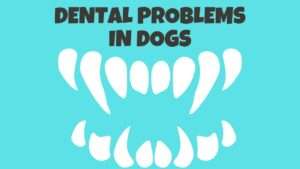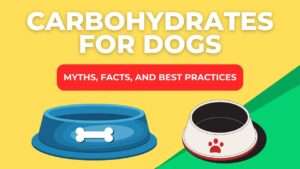Are you curious about incorporating mackerel into your dog’s diet? Mackerel, with its rich flavor and omega-3 fatty acids, might seem like a nutritious addition to your furry friend’s meals. But before you start serving up this fishy delight to your pup, it’s essential to understand the potential benefits and risks involved. In this comprehensive guide, we’ll delve into whether dogs can eat mackerel, its nutritional value, potential health benefits, risks, and how to safely incorporate it into your dog’s diet.
Contents Overview
What is Mackerel
Mackerel is a type of oily fish known for its rich flavor and nutritional value. It’s often found in both saltwater and freshwater environments and is a popular choice for seafood lovers around the world. Mackerel is packed with protein, omega-3 fatty acids, vitamins, and minerals, making it a nutritious option for both humans and animals alike. Its firm flesh and distinct flavor make it versatile for cooking in various dishes, from grilled fillets to canned products.
Nutritional Value of Mackerel
Mackerel is a nutritional powerhouse, offering a wealth of essential nutrients. It’s rich in protein, which is crucial for muscle growth and repair. Additionally, mackerel is packed with omega-3 fatty acids, such as EPA and DHA, which support heart health, joint function, and a shiny coat in dogs. This oily fish also provides vitamins D and B12, selenium, and niacin, all of which contribute to overall canine health.
Can Dogs Eat Mackerel Safely ?
Yes, dogs can eat mackerel safely, but it’s essential to do so in moderation and with precautions. Mackerel is rich in protein and omega-3 fatty acids, which are beneficial for dogs’ muscle growth, heart health, joint function, and coat shine. However, there are risks to consider, such as potential mercury contamination and bones in the fish, which can pose health hazards to dogs if consumed in large amounts or without proper preparation. Therefore, it’s crucial to choose fresh or frozen mackerel, remove all bones, and feed it in small portions to ensure your dog’s safety and well-being.
Potential Benefits for Dogs
Incorporating mackerel into your dog’s diet can offer several potential benefits:
- Promotes Healthy Skin and Coat: The omega-3 fatty acids in mackerel help nourish the skin, reduce inflammation, and maintain a shiny, lustrous coat in dogs.
- Supports Joint Health: The anti-inflammatory properties of omega-3 fatty acids can alleviate joint pain and stiffness, making mackerel a beneficial addition for dogs with arthritis or other joint issues.
- Boosts Immune Function: The vitamins and minerals present in mackerel support a strong immune system, helping dogs ward off infections and diseases.
- Aids Cognitive Function: Omega-3 fatty acids play a vital role in brain health, potentially enhancing cognitive function and supporting overall mental acuity in dogs.
- Promotes Heart Health: Mackerel’s omega-3 fatty acids are known for their cardiovascular benefits, including reducing the risk of heart disease and improving cardiac function in dogs.
Potential Risks and Precautions of Feeding Mackerel to Dogs
While mackerel offers several potential benefits for dogs, it’s essential to be aware of potential risks and take necessary precautions when incorporating it into their diet. Understanding these risks can help ensure the health and safety of your furry friend. Let’s explore the potential risks and precautions associated with feeding mackerel to dogs.
Potential Risks
- Mercury Contamination:
- Mackerel, particularly larger species, may contain high levels of mercury, which can be harmful to dogs if consumed in excess. Mercury toxicity can lead to neurological issues and other health problems.
- Thiamine Deficiency:
- Raw fish, including mackerel, contains an enzyme called thiaminase, which can break down thiamine (vitamin B1). A deficiency in thiamine can cause neurological problems in dogs, such as seizures and muscle weakness.
- Allergic Reactions:
- Some dogs may be allergic to fish proteins, including those found in mackerel. Allergic reactions can manifest as skin irritations, itching, gastrointestinal upset, or respiratory issues.
- Bones and Choking Hazard:
- Mackerel bones can pose a choking hazard or cause gastrointestinal obstruction if ingested by dogs. Even cooked or canned mackerel may contain small bones that can splinter and cause injuries.
Precautions
- Cooking and Preparation:
- Cook mackerel thoroughly before feeding it to your dog to eliminate the risk of harmful bacteria and parasites. Remove bones and ensure the fish is deboned to prevent choking hazards.
- Moderation:
- Feed mackerel to your dog in moderation to minimize the risk of mercury toxicity and thiamine deficiency. Limit the frequency and portion size of mackerel servings to prevent overconsumption.
- Variety in Diet:
- Avoid relying solely on mackerel as the primary protein source in your dog’s diet. Incorporate a variety of protein sources, including lean meats, eggs, and other fish, to ensure balanced nutrition.
- Consultation with Veterinarian:
- Before introducing mackerel or any new food into your dog’s diet, consult with your veterinarian. They can provide personalized recommendations based on your dog’s specific health needs, dietary requirements, and potential allergies.
- Monitoring for Adverse Reactions:
- Monitor your dog for any signs of allergic reactions or adverse effects after feeding them mackerel. If you notice any unusual symptoms, such as vomiting, diarrhea, or lethargy, discontinue feeding mackerel and seek veterinary advice.
Safe Ways to Feed Mackerel to Dogs
- Cooking Thoroughly:
- Cook mackerel thoroughly before feeding it to your dog to eliminate the risk of harmful bacteria, parasites, and thiamine deficiency. Cooking also helps soften the fish bones, reducing the likelihood of choking hazards.
- Deboning:
- Remove all bones from the cooked mackerel before serving it to your dog. Even small bones can pose a choking risk or cause gastrointestinal obstruction if ingested.
- Avoiding Seasonings:
- Avoid seasoning mackerel with salt, spices, or other additives when preparing it for your dog. Stick to plain, cooked mackerel without any additional flavorings or condiments.
- Portion Control:
- Feed mackerel to your dog in moderation to prevent overconsumption of certain nutrients, such as mercury. Consider your dog’s size, age, and dietary needs when determining portion sizes.
- Frequency:
- Limit the frequency of mackerel feedings to avoid potential risks associated with excessive fish consumption, such as mercury toxicity and thiamine deficiency. Offer mackerel as an occasional treat rather than a daily staple.
- Monitoring for Allergic Reactions:
- Keep an eye on your dog for any signs of allergic reactions after feeding them mackerel. Symptoms may include itching, skin irritations, gastrointestinal upset, or respiratory issues. If allergic reactions occur, discontinue feeding mackerel and consult with your veterinarian.
- Consultation with Veterinarian:
- Before incorporating mackerel into your dog’s diet, consult with your veterinarian. They can provide personalized recommendations based on your dog’s individual health needs, dietary requirements, and potential allergies.
- Introducing Gradually:
- If you’re introducing mackerel to your dog’s diet for the first time, do so gradually. Start with small amounts and monitor your dog’s response. Gradual introduction can help prevent gastrointestinal upset and allow your dog’s digestive system to adjust to the new food.
When to Avoid Mackerel to Dog
- Pregnancy or Lactation: Avoid feeding mackerel to pregnant or lactating dogs, as high levels of mercury could harm developing fetuses or nursing puppies.
- Thyroid Issues: Dogs with thyroid problems may need to avoid mackerel due to its iodine content, which could exacerbate thyroid imbalances.
- Allergic Reactions: If your dog has shown signs of fish allergies in the past, it’s best to avoid feeding them mackerel to prevent allergic reactions.
- Kidney Disease: Mackerel’s high phosphorus content may not be suitable for dogs with kidney disease, as it can strain their kidneys and worsen their condition.
- Pancreatitis: Dogs prone to pancreatitis should avoid fatty foods like mackerel, as they can trigger flare-ups of this painful condition.
- Recent Surgery: After surgery, especially abdominal procedures, it’s best to avoid feeding mackerel to prevent any potential gastrointestinal upset or complications.
- Medication Interactions: Some medications may interact with compounds found in mackerel, so consult your veterinarian before feeding it to dogs on medication.
Safe and Suitable Alternatives of Mackerel for Dogs
If mackerel isn’t suitable for your dog or you’re looking for alternative options, there are several safe and nutritious alternatives to consider. Salmon, tuna, and sardines are excellent sources of omega-3 fatty acids and protein, similar to mackerel. However, it’s crucial to ensure that these alternatives are cooked, deboned, and served in moderation to avoid potential risks. Additionally, lean meats such as chicken, turkey, and beef can provide essential nutrients without the concerns associated with fish. Remember to consult with your veterinarian to determine the best alternatives based on your dog’s specific dietary needs and health status.
Bottom Line
In conclusion, mackerel can be a nutritious addition to your dog’s diet when fed in moderation and prepared properly. Its high protein and omega-3 fatty acid content offer several potential health benefits, including improved coat and skin health, joint support, and a boosted immune system. However, it’s essential to be mindful of the risks, such as mercury contamination and bones. By following safety precautions and consulting with your veterinarian, you can safely introduce mackerel into your dog’s meals and provide them with a tasty and nutritious treat.


































+ There are no comments
Add yours